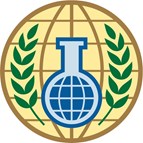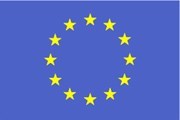[Online training programme] Disarmament and non-proliferation of weapons of mass destruction 2021
27 September - 01 October 2021- Starts at: 09:00h
- Fee: €995
- Venue: Online
- Organiser: T.M.C. Asser Instituut & the Organisation for Prohibition of Chemical Weapons (OPCW)
- Register
The challenges posed to international security by nuclear, chemical, and biological weapons are as urgent today as they were during the Cold War. There is an increasing demand for professionals in the field of Weapons of Mass Destruction (WMD) to tackle the challenges of today’s non-proliferation and disarmament agenda with a more integrated understanding of these issues. From 27 September – 1 October 2021, T.M.C. Asser Instituut in The Hague will host the twelfth training programme on disarmament and non-proliferation of weapons of mass destruction, co-organised with the Organisation for the Prohibition of Chemical Weapons (OPCW).
During this intensive online training programme, participants should expect to receive a comprehensive overview of non-proliferation and disarmament efforts regarding WMD. They will learn from renowned experts and practitioners and engage in active discussions about relevant topics and debates. Participants will also be provided with opportunities to build their network and connect with experts in the field, as well as their fellow participants.
Download the preliminary programme.
Background
Humankind continues to grapple with managing some of the ghastliest and dangerous manifestations of its evolution and technological prowess and ingenuity: Weapons of Mass Destruction. After many years in which there was relatively little attention for these weapons, Weapons of Mass Destruction (biological, chemical and nuclear weapons) have re-emerged onto the international political stage.
Nuclear weapons
The increased threat from nuclear weapons comes as nuclear arms control agreements are collapsing or under pressure, nuclear-armed states are developing new weapons systems, and conflicts involving nuclear-armed states are heating up. Although the Cold War ended, the United States and Russia are still locked in a nuclear stand-off in which each side maintains hundreds of warheads ready to be launched at a moment’s notice.
Chemical weapons
Meanwhile, despite considerable success in curtailing chemical weapons proliferation and destroying stockpiles in the last decades, the increasing number of incidents in which chemical weapons have been used in recent years is a matter of grave concern. Questions on the possible erosion of the norm against the use of chemical weapons, how future use can be deterred, and how to strengthen the capacity of the Organisation for the Prohibition of Chemical Weapons (OPCW) to deal with these threats have come to the fore.
Biological weapons
Finally, the COVID-19 pandemic serves as a grim reminder of the imperative of curtailing the spread and use of biological weapons. The pandemic was not the result of the intentional use of the COVID-19 virus for military purposes but it has illustrated the catastrophic health and economic impacts of the spread of a novel pathogen of a nature which could be used for military purposes, and the global cooperation and array of measures needed should a bioweapon of this kind ever be used.
How should we understand and deal with these new dynamics? The annual training programme on disarmament and non-proliferation of WMD gives a comprehensive overview of the international legal and political regimes governing these weapons. It considers initiatives and progress on reducing risks associated with these weapons, reviews recent or current instances of WMD flashpoints and case studies of potential arms races, instability and escalation. Finally, it examines cutting-edge issues and developments that shape the future of our efforts to control weapons of mass destruction.
Key topics: Chemical weapons, nuclear weapons, biological weapons; arms control, non-proliferation and disarmament agreements; export controls and verification mechanisms; international law and diplomacy; geopolitical developments.
Target group: the training programme is designed for early- to mid-career professionals working for governments, for example, national export control bodies, national authorities for the implementation of WMD-related treaties and agreements and national nuclear agencies. Individuals working for non-governmental organisations, think tanks addressing WMD issues and research centres in related disciplines are also invited to apply. Newly arrived diplomats in The Hague are especially encouraged to sign up for the training programme.
Course aim: The WMD training programme offers participants the chance to discuss various aspects of the issue with renowned experts in an interactive and multi-disciplinary way. Participants will leave the programme with a greater understanding of disarmament and non-proliferation efforts and the international legal challenges faced by practitioners in the field.
Participants will gain:
- In-depth knowledge of the diplomatic, legal and technical aspects of disarmament and non-proliferation;
- Insight into the work of key professionals in the area of WMD, seasoned with their personal experiences; and
- Unique networking opportunities with speakers and participants from diverse backgrounds.
Confirmed speakers
- Dr. Niels van Willigen, Associate Professor in International Relations, Leiden University
- Sico van der Meer, Research Fellow, Netherlands Institute of International Relations ‘Clingendael’
- Marina Favaro, Research Fellow at the Institute for Peace Research and Security Policy (IFSH) at the University of Hamburg and a Consultant at the Centre for Science and Security Studies (CSSS) at King’s College London
- Dr. Michal Onderco, Assistant Professor of International Relations, Erasmus University Rotterdam
- Ionut Suseanu, Senior Legal Officer, International Atomic Energy Agency
- Dr. Oliver Meier, Senior Researcher, Institute for Peace Research and Security Policy, University of Hamburg
- Daniel Feakes, Chief, Implementation Support Unit (ISU) of the BWC, United Nations Office for Disarmament Affairs
- Peter Hotchkiss, Senior Science Policy Officer, OPCW
- Yvonne Mensah, Head of Political Affairs and Protocol, OPCW
- Gareth Williams, Head of Safety and Analytical Chemistry Cell, OPCW
- Cormac O'Reilly, Senior Policy Officer, OPCW
- Santiago Oñate, Head of Investigation and Identification Team, OPCW
- Prof. Dr. Remco Breuker, Leiden University
- Laura Rockwood, Director of Open Nuclear Network (ONN)
- Dr. Jenny Nielsen, Public Information Officer, Comprehensive Nuclear-Test-Ban Treaty Organisation
- Natalia Silkina, Legal Officer, Comprehensive Nuclear-Test-Ban Treaty Organisation
- Marcel Schouwenburg, Senior Lecturer Radiation Protection, Technical University Delft
- Sibylle Bauer, Director of Studies, Armament and Disarmament, SIPRI
Scholarships
OPCW Civil Society Scholarships available
The Organisation for the Prohibition of Chemical Weapons, with funding support from the European Union, offers several competitive scholarships for civil society representatives (e.g., from non-governmental organisations, think tanks, research or academic institutions) working on issues related to the goals of the Chemical Weapons Convention. The scholarships cover the full online tuition fee.
Sorry, applications for this scholarship have closed. We no longer accept submissions.
Netherlands Ministry of Foreign Affairs scholarships
The Netherlands Ministry of Foreign Affairs (MFA) has generously agreed to fund up to 16 scholarships. Candidates should be working in the field of (or related to) WMD. They also should be nationals of and be working in one of the countries mentioned in the list of Low/Lower-Middle Income Economies of the World Bank. This scholarship covers the full tuition fee.
Sorry, applications for this scholarship have closed. We no longer accept submissions.
Questions
For inquiries, please contact educationtraining@asser.nl.
Watch an impression of the 2019 edition of the training programme:


